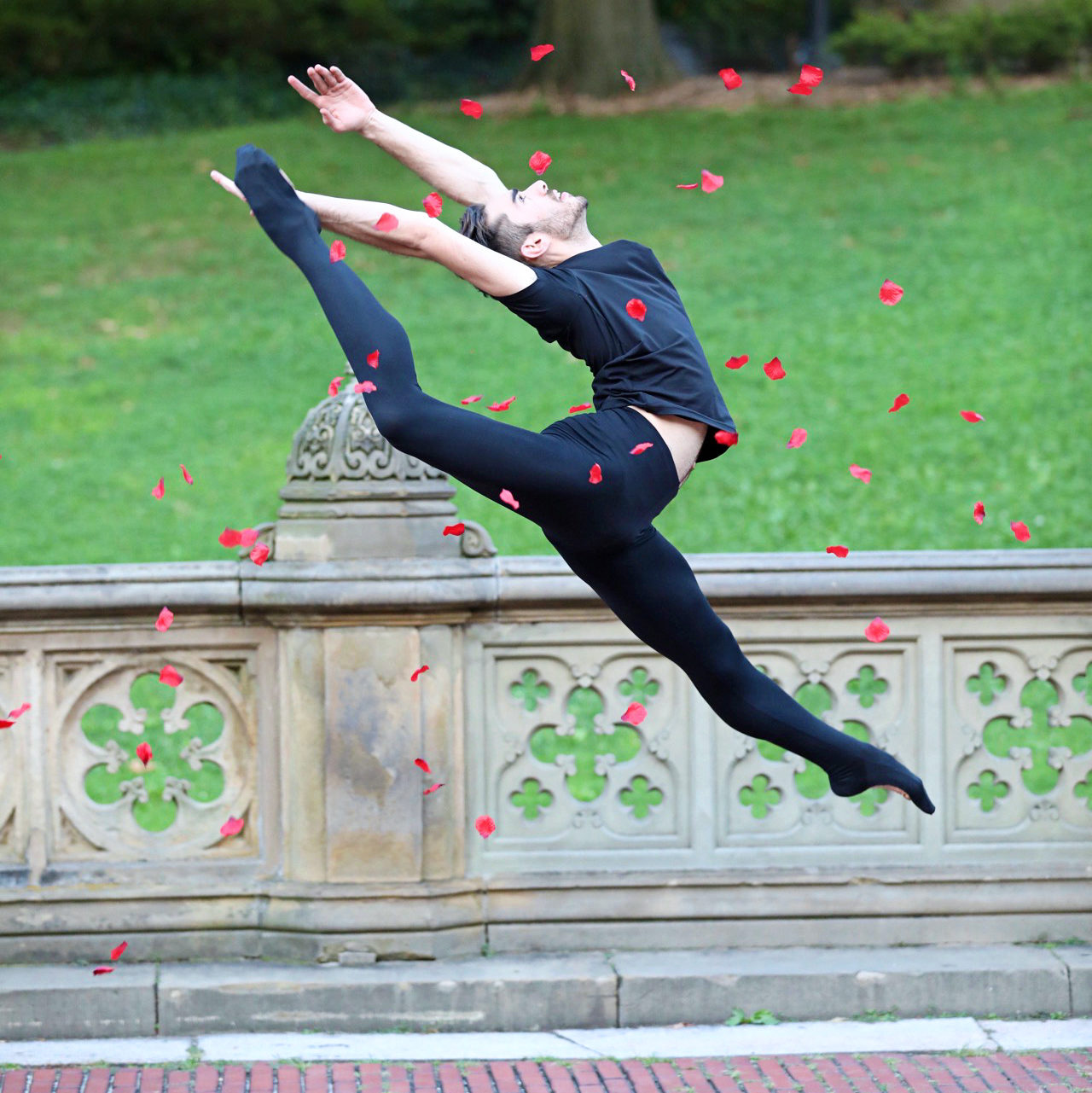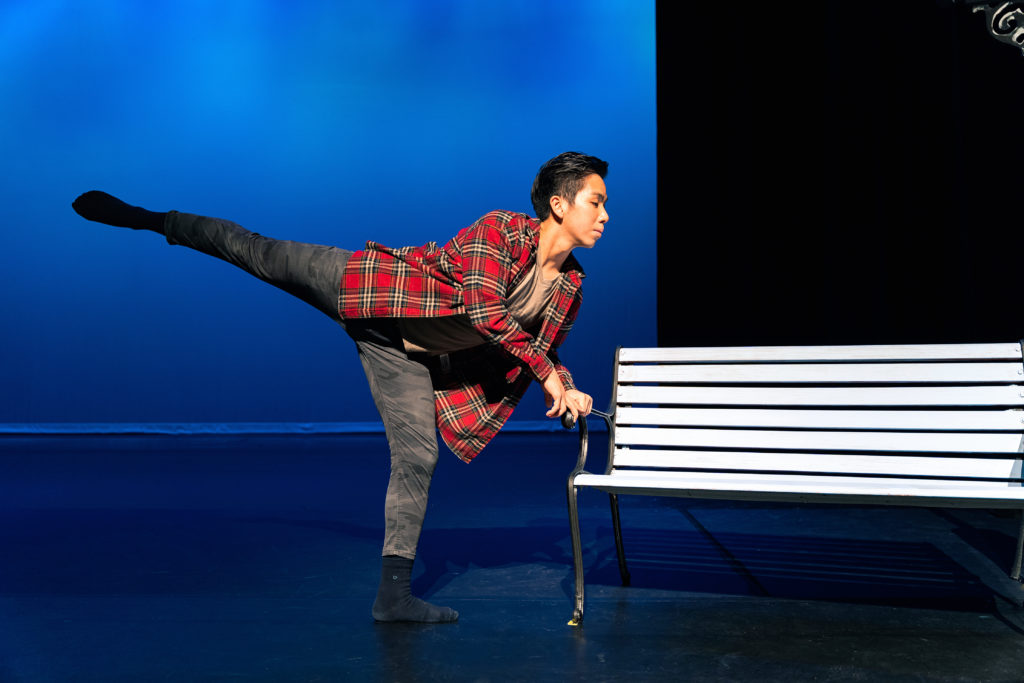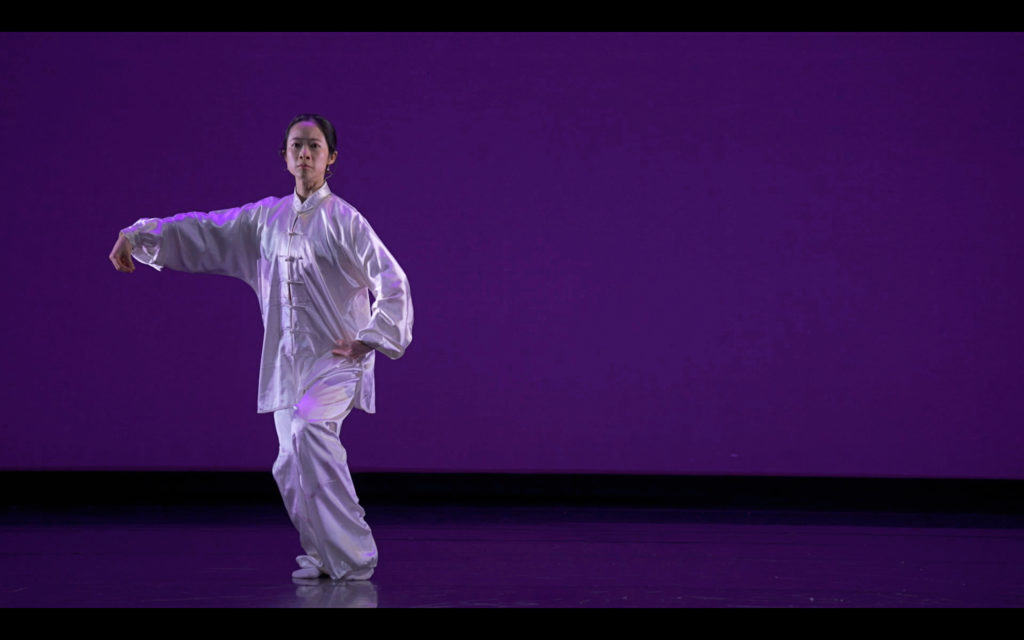The Benefits and Challenges of Being an Immigrant Dancer
Dancers around the world want to earn their degrees from American colleges and conservatories. The educational and cultural opportunities can be invaluable—not to mention career-launching—but between getting a visa, paying for tuition and living away from family and friends, the experience can be challenging. We asked three international dancers how they navigated the path to studying in the States.
Oz Shoshan, Israel
After performing in musicals and with Batsheva Dance Company in Tel Aviv, Shoshan wanted to pursue musical theater in the U.S. Extensively trained in ballet and modern, he decided to strengthen his singing and acting abilities, as well as his professional network, at The American Musical and Dramatic Academy. “There’s a diversity in the dance community in the U.S., and the knowledge they have to give is endless,” he says. “You get to be exposed to some of the biggest names and work with them.”
He graduated in 2018, but along the way he endured financial hardships and had to adjust to managing life in English. After school, he faced a legal battle to obtain an artist visa. Now living in Chicago, he’s added national tours of Bandstand and Elf: The Musical to his resumé, and “one of my goals is to create this community for people to come in and ask questions to those who have gone through it before,” he says.

Ryan Wong, Malaysia
Wong had no plans to go to college until his parents insisted he study overseas. Messiah University’s modern-based dance program appealed to him; however, he came from a hip-hop and commercial dance background and had never done a pirouette in his life. Despite Wong’s lack of modern and ballet training, Messiah’s faculty accepted him into the undergraduate major and emphasized that he’d need to be open to learning new dance styles.
“The U.S. gave me the opportunity to explore the world of theater and dance in a bigger, broader aspect,” says Wong, who earned his degree in 2021. The exposure to a more robust arts community than that in Malaysia helped him move from commercial dance to musical theater, where he’s performed in a national tour of Rudolph the Red-Nosed Reindeer, and after five years he feels at home in the U.S. “I found people with the same mindset here, which helped me change my mindset for the better,” he says. “I wouldn’t want to go anywhere else.”

Fangfei Miao, China
The dance scene in China, particularly Beijing and Shanghai, is quite vibrant with many opportunities, so dancers move to the U.S. for reasons beyond training. “For Chinese dancers, coming to the U.S. is less about gaining dance knowledge and more about the cultural experience and stepping out of their comfort zones to see the outside world,” says Miao.
Having already received her BA and MFA in dance history, theory and choreography from the Beijing Dance Academy, she earned a PhD in culture and performance at UCLA in 2019. Since 2020 she’s been an assistant professor of dance at the University of Michigan, where she helps international students adjust to life in a new country.
Culture shock was one of the hardest parts of immigrating for Miao, but the administration at UCLA and Michigan provided orientations and helped her make connections with other students. Sticking it out through the challenges paid off, she says. “Coming to the U.S. really changed my life in many ways and made me a bilingual, bicultural person.”

Finding the Right Fit
A few things to consider when choosing a school:
Scholarships: “Look for schools that offer international scholarships,” says Oz Shoshan. “As immigrants, we don’t qualify for student loans, and you have to keep that in mind because college is so expensive here.”
Community: “For international students, locate a place where you can find a community,” says Fangfei Miao. “For example, L.A. has a huge community of Asian people.”
Ambition: “If you’re flying this far to a different country, you might as well go for your dream school,” says Ryan Wong. “What do you have to lose?”
Worldly Wisdom
“When you’re studying abroad, make the most out of it. Take in the culture, study well, make good friends and work on your art.” —Ryan Wong, 2021 Messiah University graduate
“Find people who have done it before you, so you have support in this journey. Reach out, ask questions and truly get a better idea of what you’re stepping into.” —Oz Shoshan, 2018 American Musical and Dramatic Academy graduate
“Follow your heart. Quite often, people look forward to fortune and being wealthy, but money isn’t the most important thing in life.” —Fangfei Miao, 2019 UCLA PhD graduate





